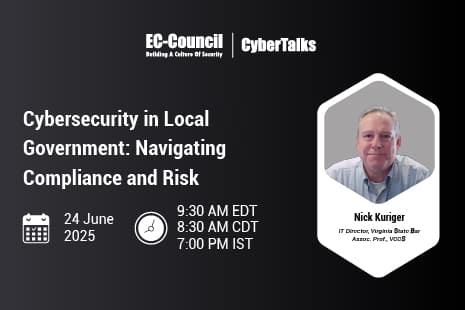With cyber threats increasing globally, cybersecurity roles are among the most in-demand and well-compensated positions in the tech industry. One notable role of a Cyber Security Analyst is to protect an organization’s data, networks, and systems from unauthorized access or attacks. This demand is reflected in competitive salaries, which vary across regions. In this article, we explore the cyber security analyst salary across significant countries, essential skills and certifications, and how technological advancements, such as AI integration, shape the cybersecurity landscape.
What is the Role of a Cybersecurity Analyst?
A Cybersecurity Analyst is a professional dedicated to safeguarding an organization’s computer systems, networks, and sensitive data from cyber threats and unauthorized access. Their role is integral in detecting, analyzing, and preventing security breaches, which can lead to data theft, financial loss, and reputational damage. Cybersecurity analysts act as the first line of defense in an organization’s digital security framework by monitoring and managing security measures.
What Does a Cybersecurity Analysts Do?
Cybersecurity Analysts carry out a range of tasks to keep systems secure and mitigate potential risks. Some of their key responsibilities include:
- Threat Monitoring and Detection: Continuously monitoring networks, systems, and applications to identify and respond to suspicious activity or anomalies that could signal a cyber threat.
- Vulnerability Assessment and Testing: Conduct regular assessments to identify and address vulnerabilities in the system. They often use ethical hacking techniques to test the robustness of security controls.
- Incident Response and Investigation: When a security breach occurs, cybersecurity analysts analyze the event to understand how it happened, contain the threat, and prevent it from recurring.
- Security Policy Development: Creating and implementing security policies, protocols, and employee training programs to improve awareness and encourage best practices.
- System and Software Updates: To avoid being targeted by attacks that take advantage of known weaknesses, it is essential to continuously keep all systems, applications, and even software up to their latest security patches or updates.
Cybersecurity Analyst Salary: How Much Can You Earn?
A cyber security analyst’s salary varies depending on location, experience level, industry, and the specific responsibilities tied to the role. As cybersecurity has become a core priority for businesses worldwide, salaries for computer security analysts are at an all-time high, making this an attractive career path for those interested in tech and digital defense.
Cybersecurity Analyst Salary by Country: USA, India, UK & More
To help aspiring analysts and current professionals understand earning potential, here is a country-by-country breakdown of the annual average salary for cybersecurity analysts in 2025.
United States:
Cybersecurity analyst salary: Ranges from USD 88,990 to $145,031, with $110,109 as the annual average salary.
source: talent.com
United Kingdom:
Cybersecurity analyst salary: Ranges from £35,000 to £62,000, with £45,000 as the average annual salary.
source: talent.com
Germany:
For cybersecurity roles in Germany, the salary of a cyber security analyst generally falls between €39,000 to €78,000, with €52,095 as the average annual salary.
source: payscale
France:
A cyber security analyst’s pay in France varies widely, with most earning between €34,000 and €74,000, with €60,400 as the average annual salary.
source: talentup
India:
The salary of cyber security analysts can range from ₹4,00,000 to ₹10,00,000 annually, with ₹6,00,000 as the average annual salary.
source: glassdoor
UAE:
Cybersecurity analysts earn competitive pay in the UAE, especially in Dubai and Abu Dhabi. The average salary of a cyber security analyst here is around AED 165,684, with top-tier professionals earning even more.
source: naukrigulf.com
China:
Cybersecurity analyst salary: Average annual salary of ¥440,655.
source: salaryexpert
Singapore:
Cybersecurity analysts enjoy an average annual salary of SGD 65,744 in Singapore. Tech hubs and financial sectors tend to offer the highest pay.
source: sg.indeed
Japan:
Japan’s cybersecurity sector offers competitive salaries to cybersecurity analysts, with entry to mid-level roles ranging from ¥6,835,146 million to ¥12,040,525 million per year with an average salary of ¥ 9,723,635 million per year.
source: salaryexpert
Australia:
In Australia, Cyber Security Analysts earn an average salary of $152,500 annually, or approximately $1,010 daily. Entry-level positions start at $135,000 annually, while senior roles can offer up to $170,000 annually.
source: clicks.com.au
How do you become the highest-paid cybersecurity analyst?
Cybersecurity analysts need specific technical and analytical skills to carry out their responsibilities effectively. Here are some of the essential skills required:
Essential Skills for a High-Paying Cybersecurity Analyst Role
- Network Security: Understanding network protocols, architectures, and devices to protect network infrastructures from unauthorized access.
- Ethical Hacking: Conducting penetration testing to simulate potential attack scenarios and identify system weaknesses.
- Threat Intelligence: Staying updated on the latest cyber threats, malware, and hacking techniques to anticipate potential attacks.
- Incident Response: Knowing how to respond to security incidents quickly, contain threats, and perform forensic investigations.
- Cryptography: Knowledge of encryption methods and cryptographic protocols to secure data in transit and at rest.
- Risk Analysis and Management: Ability to assess risks and prioritize security resources based on the potential impact.
- Analytical Thinking: Solving complex problems by analyzing data, logs, and security alerts to understand the nature of threats and vulnerabilities.
- Compliance Knowledge: Familiarity with security frameworks (like NIST ISO 27001) and regulations (such as GDPR) to ensure the organization’s compliance.
Mapping Cybersecurity Analyst Skills to CEH Skills
The Certified Ethical Hacker (CEH) certification is designed to equip cybersecurity professionals with the skills to simulate and defend against real-world cyber threats, making it an ideal pathway for anyone pursuing a cybersecurity analyst role. Here’s how the core skills of a cybersecurity analyst map directly to CEH skills:
How CEH Certification Maps to Cybersecurity Analyst Skills
Network Security: CEH trains on network scanning, footprinting, and reconnaissance to understand network vulnerabilities and bolster security.
Ethical Hacking: CEH covers penetration testing and hacking methodologies, teaching analysts to think like attackers and find system weaknesses.
Threat Intelligence: CEH includes modules on malware threats, enumeration, and social engineering, helping analysts understand and anticipate cyber attack patterns.
Incident Response: CEH teaches skills for attack analysis, threat containment, and forensic investigation, which are crucial for incident response.
Cryptography: CEH provides training on encryption algorithms, cryptographic attacks, and secure data transmission practices.
Risk Analysis and Management: CEH equips analysts with vulnerability assessment techniques, enabling them to evaluate risks based on impact.
Analytical Thinking: Through hands-on labs and simulated scenarios, CEH improves analytical and problem-solving skills crucial for threat analysis.
Compliance Knowledge: CEH also touches on compliance-related topics to help professionals adhere to industry standards and protect sensitive information according to regulatory requirements.
Benefits of AI-Driven Cybersecurity Skills
- Automate many repetitive job tasks
- Gain 2x productivity
- Advanced threat detection
- Bring 40% more efficiency in cyber defense
- Enhanced decision-making
Why CEH Certification is Essential for Cybersecurity Analysts
The CEH certification prepares cybersecurity analysts to detect and neutralize threats by providing comprehensive, hands-on training in ethical hacking and incident response. With the inclusion of tools like ShellGPT in CEH v13, analysts also gain insights into AI-enhanced cybersecurity practices, enabling them to automate tasks, analyze data, and respond to threats more effectively.
Unique Benefits of CEH v13 for Cybersecurity Analysts
- Globally Recognized: CEH – World’s No.1 Ethical Hacking Certification for 20 years and the only ethical hacking certification to teach AI-driven cybersecurity skills.
- 4-phase learning framework: CEH is the only cybersecurity training with a unique learning framework: (i) Learn, (ii) Certify, (iii) Engage, and (iv) Compete.
- CEH Learn:
- CEH 20 modules cover core domain skills of cybersecurity.
- Access to hands-on lab 221 labs and 4,000 hacking tools for practical learning.
- Labs to practice AI skills.
- Diverse Attack Techniques: Covers 551 attack techniques to prepare for real-world scenarios.
- CEH Engage: Real-world hacking simulations on real networks for immersive training.
- CEH Compete: Includes 12 Capture-The-Flag (CTF) challenges for skill refinement with one year access, providing a continuous learning platform.
- AI-Driven Skills: Enables professionals to master AI-based cybersecurity skills and learn to hack AI attack systems.
- Dual Exams: CEH includes a 4-hour, 125-question, knowledge-based, and a 6-hour practical exam with 20 practical scenarios to validate skills. Both the exams are ANAB 17024 approved and US DoD accreditated.
- CEH Master: Earned by passing both exams and showcasing advanced ethical hacking proficiency skills to employers.
- Job-Ready Certification: Mapped to 48 cybersecurity job roles, boosting employability.
The Certified Ethical Hacker (CEH) certification validates core cybersecurity analyst skills and provides advanced training on tools and techniques used in real-world cyber defense. This makes it one of the best certifications for anyone looking to excel as a cybersecurity analyst.
Cybersecurity Analyst Salary & Career Growth: Key Takeaways
A career as a cybersecurity analyst offers high earning potential, continuous learning opportunities, and a chance to make a real impact. Cybersecurity analyst salaries are rising globally, with professionals benefiting from the heightened demand for their expertise. The salary of a cyber security analyst also benefits significantly from certifications, especially CEH v13 with AI skills, making it a compelling path for anyone interested in a tech career.
In conclusion, becoming a cybersecurity analyst may be fulfilling if you’re drawn to problem-solving, enjoy working with technology, and want a role with growth potential. The skills gained with CEH v13, as well as a dedication to staying updated with new tools and technologies, will ensure that you secure a lucrative cyber security analyst salary and contribute meaningfully to protecting our digital world.











